Therapy For Childhood Trauma: Healing The Inner Child As An Adult-💜
CNS Healthcare • August 1, 2025
As an adult, you may find that you recall painful memories or experience emotional triggers from your early childhood at times. If this is you, don't feel like you're alone. In fact, you might be surprised to hear that according to the Substance Abuse and Mental Health Services Administration, two-thirds of children experience at least one traumatic event before they reach the age of sixteen.
In this post, you'll learn more about how participating in therapy for childhood trauma can help adults heal their inner child through specialized treatments like Trauma-Focused Cognitive Behavioral Therapy and Eye Movement Desensitization. Keep reading to find out if this type of therapy is right for you!
Key Takeaways
- More than two-thirds of children in the U.S. go through at least one traumatic event before they reach sixteen. If left untreated, this may lead to mental health issues later on in life (Substance Abuse and Mental Health Services Administration).
- Serious conditions such as PTSD, depression, anxiety disorders, eating disorders, substance use disorder, chronic stress, and even suicidal thoughts can be the result of unresolved childhood trauma. After a traumatic event, around 15% of girls develop PTSD as compared to only 6% of boys.
- Evidence-based treatments including Trauma-Focused Cognitive Behavioral Therapy and Eye Movement Desensitization and Reprocessing (EMDR) are therapies that help both kids and adults recover from past trauma. These also minimize emotional triggers and help create coping skills.
- It may be extra beneficial to include family members in your therapy sessions. This can create a safe environment where families can heal together.
- Adults in Michigan should access early intervention for childhood trauma to reduce the risk of future mental illness. Other types of therapy like art therapy or play therapy may also help young people tap into trauma and prevent later issues.
Understanding the Impact of Childhood Trauma on Adults
Childhood trauma affects adults and their mental well-being over the long term. 40% of people in the United States have experienced at least one traumatic event during their childhood, while 15% have shockingly gone through three or more.
Adverse Childhood Experiences, also known as ACEs, include physical abuse, sexual abuse, emotional abuse, neglect, homelessness, community violence, domestic violence, parental divorce, substance use, serious accidents, loss of a loved one, and racism.
Long-term conditions may arise from unresolved childhood trauma. These may include but are not limited to post-traumatic stress disorder, anxiety disorders, depression, eating disorders like anorexia and bulimia nervosa or binge-eating disorder, substance use disorders, chronic stress, sleep disturbances, panic attacks, chronic pain, low self-esteem, distorted view of self-image, and feelings of shame or guilt.
While both men and women can suffer from PTSD after going through traumatic experiences in their youth, 15% of young girls are affected, while only around 6% of boys have PTSD symptoms.
When harmful incidents occur repeatedly over time, complex trauma is created. Adults that don't get help for their symptoms may end up suffering from impulsiveness or compulsive behavior patterns, disrupting their daily life and healthy relationships.
It's important that these adults get connected with a licensed therapist or mental health professional, like those at CNS Healthcare in Detroit, Michigan. With the help of effective treatment plans like Trauma-focused CBT or EMDR therapy sessions, adults can avoid more serious symptoms like suicidal ideation or severe physical illness which are often linked to chronic stress responses.
Effective Therapies for Healing the Inner Child
Healing your inner child will demand specific treatment approaches. Treatments like trauma-focused cognitive behavioral therapy and narrative exposure therapy are a few options to effectively heal the emotional responses caused by childhood trauma.
Trauma-Focused Cognitive Behavioral Therapy
Trauma-Focused Cognitive Behavioral Therapy is an evidence-based treatment for adults who are struggling with past child-trauma or posttraumatic stress disorder. In this type of therapy, you'll work in structured sessions alongside a trauma therapist to work through your past trauma.
This type of therapy helps adults process traumatic memories cause by past events such as childhood abuse, or loss of family members. It also can benefit adults who struggle to express normal emotional responses which can improve their relationships and communication skills.
The American Psychological Association recognizes TF-CBT as an effective therapy for treating the symptoms of PTSD in both adolescents and adults across the United States.
Eye Movement Desensitization and Reprocessing
Eye Movement Desensitization and Reprocessing, also known as EMDR, helps you process memories linked to past trauma. Trained mental health professionals will guide you through these exercises by acting out certain eye movements and other forms of bilateral stimulation.
After one to three sessions, this form of therapy can usually reduce PTSD symptoms. You will still remember the trauma from your past, but the emotional response will become less intense, making it more manageable to recall.
EMDR is ideal for both children and adults who have a history of trauma. This therapy creates a safe space where you can work through difficult memories without becoming overwhelmed or overly upset. Studies have also shown that EMDR is an effective treatment for child traumatic stress, and can address a variety of mental health conditions that stem from negative thought patterns due to early childhood trauma.
If you're looking for professional help in the local Michigan area, begin your healing process with CNS Healthcare. Come get your specific needs addressed with the help of trained professionals.
Benefits of Addressing Childhood Trauma Through Therapy
Therapy offers many benefits for adults who are dealing with past childhood trauma. Practicing regular therapy minimizes the impact of trauma on your daily life. With the right support, you can learn beneficial coping mechanisms that can help you manage disruptive trauma symptoms.
Early intervention is key for healing in adulthood because it reduces the chance of future mental health issues. By making Trauma-Focused Cognitive Behavioral Therapy or Dialectical Behavior Therapy a part of your routine, you can begin to heal, grow emotionally, and build resilience.
It may also be beneficial to involve your family members in your therapy sessions for additional benefits. Engaging in family therapy creates a more supportive environment and can promote quicker healing. Support groups are another way to further enhance this process by connecting you with other adults who are experiencing similar struggles.
Therapy helps individuals and families develop essential coping strategies.
Heal Your Past Trauma
Childhood trauma doesn't disappear after childhood ends...it can last well into adulthood, causing disruptive conditions for life. However, with the right therapies, such as Trauma-Focused Cognitive Behavioral Therapy and Eye Movement Desensitization and Reprocessing, there are many effective paths that can lead to healing.
Addressing these issues early on can significantly improve your mental health and prevent more severe conditions from occuring later down the line. Surrounding yourself with professional guidance as well as community support systems will be key in the success of your healing journey.
If you're a local Michigan resident feeling the effects of childhood trauma, take the first step today by reaching out to CNS Healthcare in Oakland County. Healing your inner child requires professional health and can help you manage past trauma while leading a more fulfilling life.
FAQs
1. What is trauma-focused therapy for childhood trauma in adults?
Trauma-focused therapy provides a structured approach to help adults struggling with past psychological trauma process their memories from childhood. They can leverage helpful therapies like cognitive processing therapy to work through their trauma narrative and learn to better cope with symptoms of childhood trauma.
2. How does a support system aid the healing process after traumatic events?
Adults that have a strong support system can better address their health needs throughout therapy and recovery. Friends, family, and professionals can provide emotional support and a safe space as adults learn to better manage the effects of trauma or mental health disorders they are going through.
3. What are common symptoms of childhood trauma that may appear later in life?
Adults who dealt with early childhood trauma may later develop physical symptoms, experience drastic mood swings, or even suffer from mental illness like bipolar disorder. Trauma response patterns may also include conditions like anxiety, depression, or difficulty forming and maintaining relationships.
4. Why is Trauma-Informed Care important in treating young adults with a history of abuse or sexual assault?
Trauma-Informed Care recognizes the lasting impact of trauma on mental health and how adults function later on in life. This method offers customized recovery options to troubled individuals so they can receive more effective childhood trauma treatment.
5. What steps should someone take if they suspect unresolved psychological trauma from youth?
If you think you might have lingering trauma from childhood, the first step you should take is to get a professional assessment to diagnose specific effects of childhood events, as well as address any related mental illness. Clinicians will conduct a systematic review by applying evidence-based therapies customized to each type of trauma.
Newsletter
Stay up to date by subscribing to our newsletter.
Recent Posts
SHARE THIS POST WITH YOUR FRIENDS













